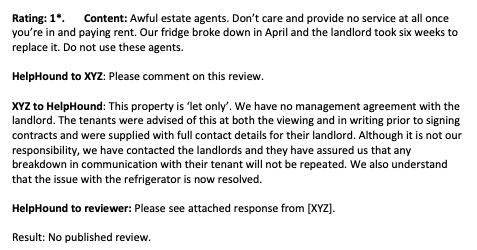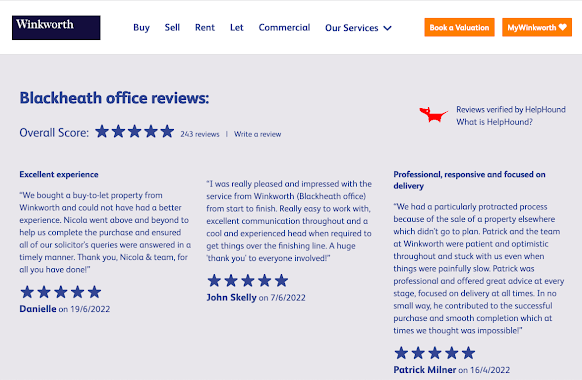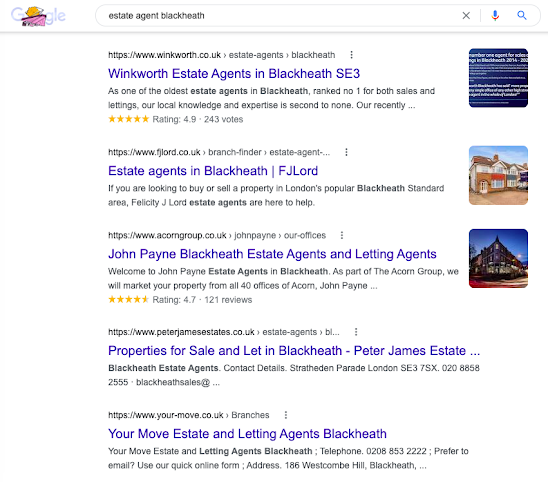A new client reminded us that some people are still on first base regarding reviews and that we haven't written a 'beginners guide' for quite some time. Here we address all the questions someone coming new to the subject of online reviews might have - if you have any that aren't answered here please let us know and we'll add them in.
1. Who reads reviews?
The simple answer? Everyone. Why? Because they are placed front-and-centre of every Google search. And that in itself tells you a lot: if Google are putting such value on reviews we know that it knows consumers are a) reading them and b) acting on what they read.
2. Who writes reviews?
You might be surprised. It is far too easy to fall into the trap of thinking that those who write reviews are lonely people with far too much time on their hands; review writers come from across the spectrum. But, in a way, it doesn't matter who thy are, because, taken together, they have immense power - to drive business towards or away from any given business. As the graphic above says: ask and you will receive.
We include this review to show you that businesses that provide great service - even in such a sensitive area as this, will attract reviews, providing the invitation is worded sensitively. And how valuable must such a review be to people in a similar situation?
3. Do reviews have credibility?
Again, this can be argued until the cows come home. The fact is that the more urgent the need and the more complex the issue, the more people rely on reviews. Shirts and socks? Not so much. Health, finance and legal? Far more so.
4. What impact will 'opting in' with reviews have on our business?
It will light up your online shop window. No matter how much marketing and PR a business does, at the end of the day it's going to be searched for online - even if that's simply to find an address or phone number. At that point the potential customer is going to see reviews - Google reviews - and they will read them, it's only human nature.
From a statistical point of view we tend to advise businesses to expect an uplift in enquiries - through both their website and Google search - of between 8 and 15 percent. Some experience far more than that, but none experience a fall. Adopting moderated review management is a win/win all the way.
5. How can we measure this?
Every month Google sends your business a report. In that report are the hard numbers for the calls and clicks you've received in the previous month. These will reflect any uplift as a result of your online efforts, including reviews. The image above is a screenshot of a client's first Google My Business report post-adoption. It shows a remarkable uplift in calls and clicks through to their website - +18% and +27% respectively; you can see the results in your own GMB report, every month.
6. What about all the review sites?
Google reviews only came to prominence after the review sites had been founded - the likes of Yelp, Trustpilot, Reviews.io and Feefo all preceded Google reviews. Now the review sites offer no added value for a business: they are less visible and less credible. Ultimately all business needs to do is ask itself 'Would we rather have 100/1000 Google reviews or the same number on [Trustpilot/Feefo...]?
7. What can we do if we get an unfair or inaccurate negative review?
Google has very tight guidelines for appeals against reviews. That is why moderation - see 8. below, is so important. We conduct Google appeals on behalf of clients all the time and some do succeed, but it is important that businesses employ some kind of moderation in order that factually inaccurate or potentially misleading reviews are spotted before they reach Google.
8. How does moderation work?
The review is written to the business's website. HelpHound reads the review before it is published and reverts to both business and reviewer if there is any contentious content. In order to be compliant with the CMA regulations the reviewer retains the right to have whatever review they want published, at any time during or after this process. Here's an example of moderation in action...
At any time during this process, or at any time subsequently, the reviewer could publish their review - or an amended version of it. The fact that few choose to do so is a reflection of the efficacy of moderation in resolving misunderstandings.
9. What impact will hosting reviews on our website have?
Consumers want reviews; of that there is no longer any shadow of a doubt. So modern businesses show reviews, prominently. And enquiries flow as a result.
10. How will we get stars in Google search?
Here's a typical local search on Google; the stars next to Winkworth Blackheath relate the score and reviews hosted on its website, not its Google reviews and score.
This is where your web designer comes in. We provide them the API and they implement it in such a way as the Google schema pulls the ranking we show on your site through to search.
11. Why not go direct to Google?
Indeed. If you are happy to score 4.3 and have 5-15 percent of your reviews rating your business at one star then by all means focus on Google without moderation. But if your competitors are scoring 4.8 - by fair means or foul* - you will need a moderated system.
If you work in sensitive professions - medical, legal, financial and so on, where multiple reviews are read by consumers before making their initial enquiry it is vital to minimise the number of factually inaccurate or misleading reviews. And not just for your business's sake but for the sake of your future customers/clients/patients who may otherwise be put off taking the next step towards using your services.
12. *Fair or foul?
It is illegal - in the UK anyway - to...
- selectively invite customers to write reviews
- control the timing of such an invitation
- perform any action to establish whether or not a customer is likely to write a 5* review before inviting those who do so to write one (known as 'gating')
But that doesn't mean that many businesses don't do exactly this: in our experience the overwhelming majority of businesses do, wittingly or unwittingly. Moderation gives such businesses the comfort that they won't be breaking the law in future.
Thats all. As we said at the start, please don't hesitate to contact us if you have any questions - through this blog or direct at info@helphound.com or by phoning 020 7100-2233.











